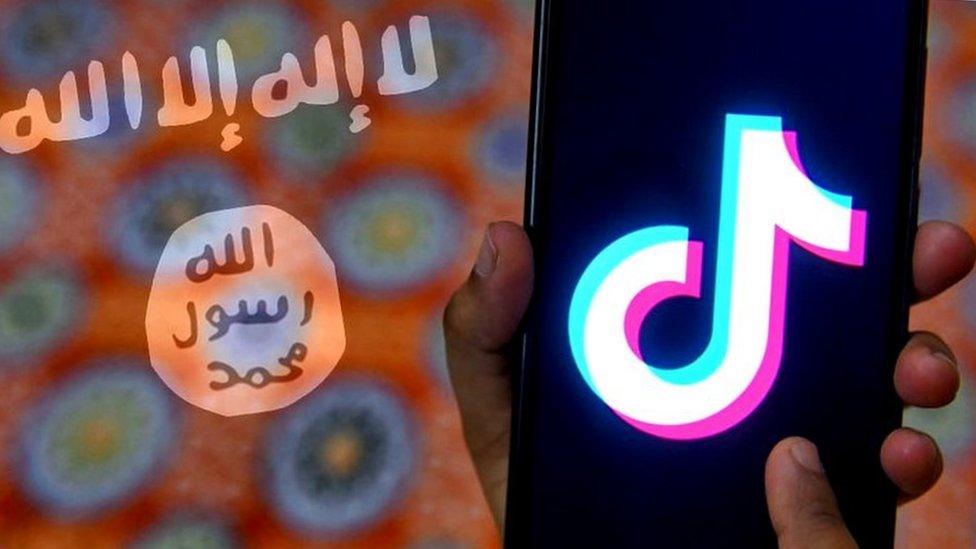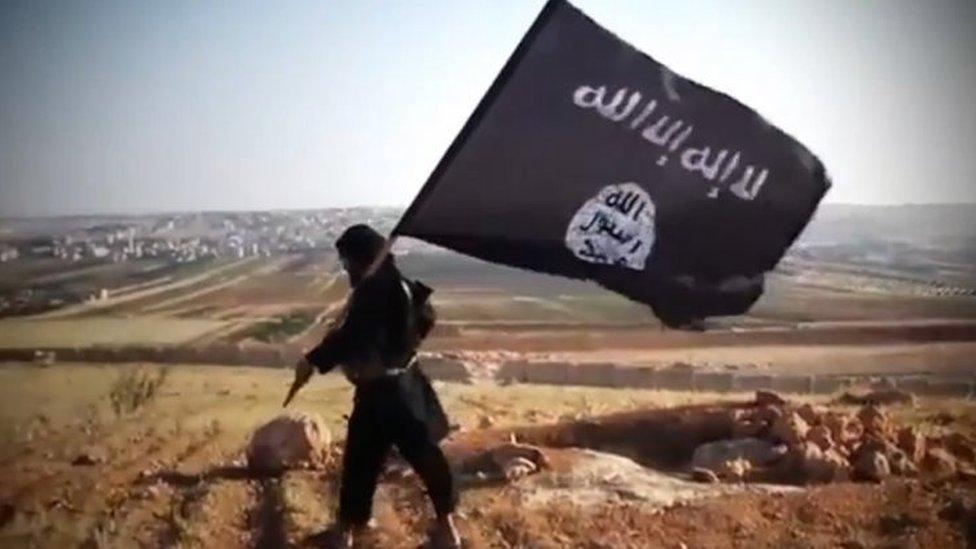TikTok used by Islamic State to spread propaganda videos
- Published

Video-sharing app TikTok is being used by Islamic State militants to spread propaganda to a younger audience, according to the Wall Street Journal, external.
Supporters reportedly shared videos showing IS fighters with guns and corpses being paraded through streets.
Some of the videos, posted in recent weeks, are said to have included TikTok augmented-reality effects that stream stars or hearts on top of the content.
Videos flagged by the newspaper have been removed and 24 accounts blocked.
The videos were identified by the social-media intelligence sharing company Storyful.
"This discovery fits with a pattern we've seen over some years of extremist movements successfully colonising and adapting to new social media spaces to reach large audiences," Imran Ahmed, chief executive of the Center for Countering Digital Hate, told the BBC.
"TikTok has shown it has the ability and the will to controversially censor themes opposed by the Chinese government.
"It is not unreasonable therefore that we should expect it to quickly remove terrorist propaganda."
'Pledge allegiance'
The video uploads also featured women who call themselves "jihadist and proud", according to the Wall Street Journal.
In one, people are said to have sung: "We pledge allegiance till death."
Terrorist and criminal organisations are prohibited from using TikTok.

Islamic State has previously used YouTube as a means to share its videos
The company, owned by Beijing-headquartered Bytedance, uses thousands of human moderators and artificial-intelligence software to keep harmful content off its platform but the combination does not always work.
'Malicious behaviour'
"Content promoting terrorist organisations has absolutely no place on TikTok," it said.
"We permanently ban any such accounts and associated devices as soon as identified and we continuously develop ever-stronger controls to proactively detect suspicious activity.
"This is an industry-wide challenge complicated by bad actors who actively seek to circumvent protective measures but we have a team dedicated to aggressively protecting against malicious behaviour on TikTok."
Islamic State is well known for using social media platforms Facebook, YouTube, and Twitter to spread its message but this appears to be the first time it has targeted TikTok.
Last month, Islamic State leader Abu Bakr al-Baghdadi called on his followers, external to double their efforts after the group lost control of parts of Syria and Iraq.
- Published3 July 2019
